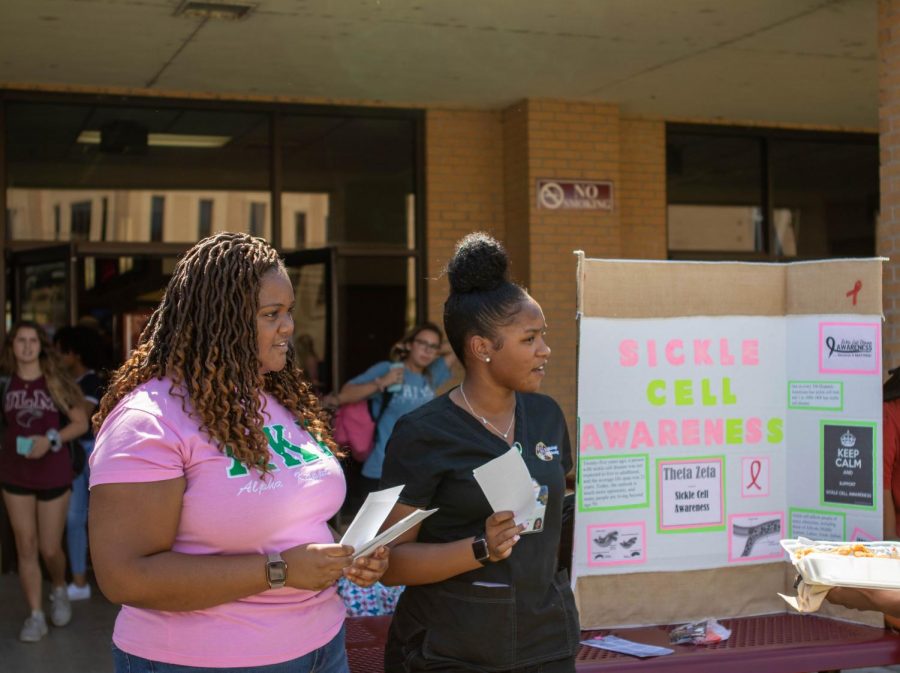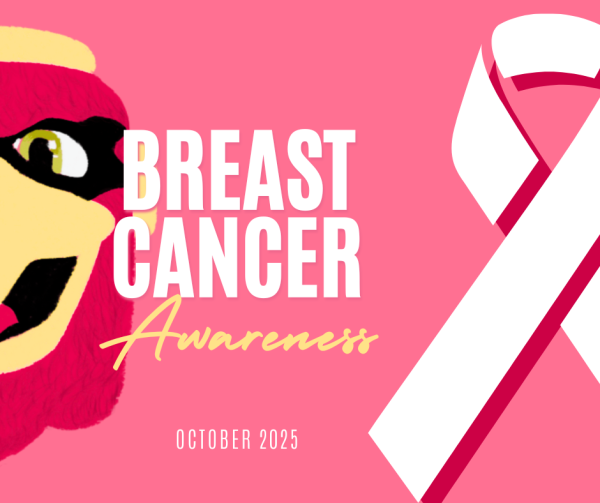Sorority educates campus on sickle cell disease
Eye diseases. Gall stones. Bacterial infections. Anemia. Strokes. These are all the risks that come with sickle cell disease.
The Theta Zeta Chapter of Alpha Kappa Alpha passed paper handouts on Tuesday for September Sickle Cell Awareness Month so students know the risks of sickle cell disease and facts about it.
Michaela Bell, the president of the Theta Zeta Chapter, said that the sickle cell awareness handout is a tradition they hope to continue.
“We do this for the month of September every year. It gives awareness to some people who don’t know about sickle cell. Some people don’t even know that they have the trait,” said Bell, a senior speech language and pathology major.
While sickle cell does come with risks, according to Science Daily, sickle cell disease fights against other diseases like malaria. Also, many students should know that sickle cell can affect anyone—whether you’re African American or not, according to Raven Ross, a member of Theta Zeta Chapter.
According to the paper handout, the lifespan for people with sickle cell disease was only 21 years, but now people are living up to 40 years and older. While life expectancy has increased, Bell said sickle cell disease is still something that should be taken seriously.
“I don’t think people take it as serious as it can be,” Bell said. “I know that for some people it can affect them in a major way and for others it may not be.”
Because of how serious sickle cell disease actually is, Ross said it is important to get tested for the sickle cell trait, especially if you are thinking about having a child.
“If you are thinking about having a child and you and your partner both of you have the trait, your child could be susceptible to sickle cell disease and you would have never known,” said Ross, a pharmacy student.
Ross said that a big misconception about sickle cell disease is that many people believe sickle cell disease is not curable.
“Most people probably don’t think it has a cure and it does have a cure—bone marrow transplant,” Ross said.







